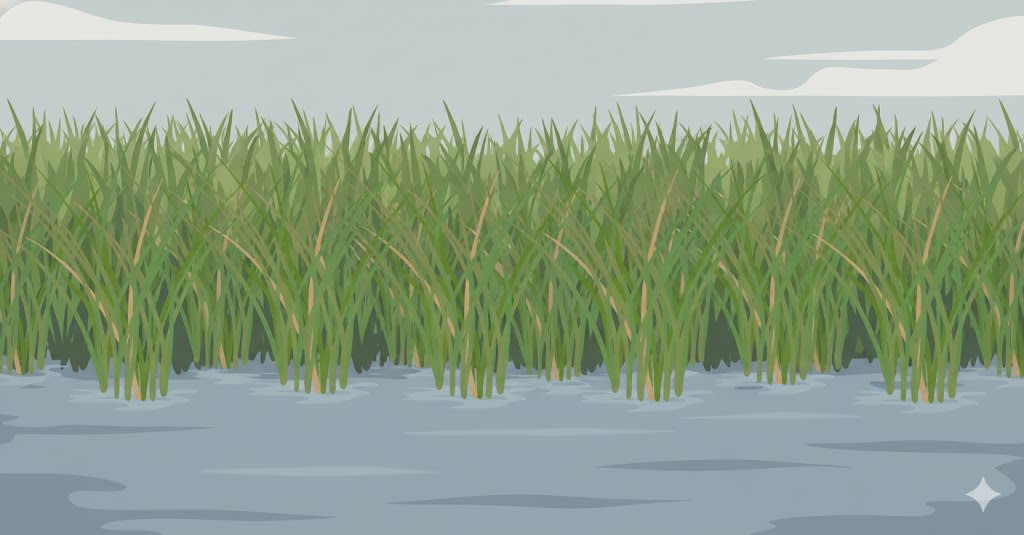Introducing Spartina.io
I’ve been meaning to start this blog for a while now, and I finally decided to just do it. So here we are.
What This Is
Spartina is my corner of the internet for building things, exploring new technologies, and documenting what I learn along the way. If you’re wondering about the name—spartina is a type of coastal grass that grows in salt marshes, right where land meets water. It’s resilient, adaptive, and thrives at the boundaries between different environments. That metaphor felt right for what I want to do here: work at the intersections of software and hardware, theory and practice, established tools and emerging capabilities.
I’m particularly interested in AI right now—not the hype or the headlines, but what happens when you actually build something with these tools. What works? What doesn’t? What problems can you solve that weren’t solvable before?
What I’m Working On
A main project at the moment is the SCHH Commons AI Assistant—a specialized chatbot I built for my community, Sun City Hilton Head. When I moved here, I was struck by how hard it could be to find basic information. Important stuff is scattered across multiple websites, PDFs, monthly magazines, email newsletters, and YouTube TV broadcasts. Much of it isn’t searchable or organized in an intuitive way.
So I built something to help. The AI Assistant uses Google’s NotebookLM—a document-grounded AI tool—connected to a curated knowledge base of community documents. Instead of hunting through a dozen different sources, residents can just ask a question in plain language and get an answer drawn from official materials.
The Knowledge Base includes governance documents, lifestyle information, club resources, and other community materials. It’s continuously growing based on what people actually need.
It’s been fascinating to see how people interact with it. Some folks who’ve never used ChatGPT or any AI tool before are now comfortable asking the Assistant questions about everything from modification requests to upcoming events. That’s the goal—make the technology invisible and the information accessible.
I’ll be writing more about the technical side of this project: how it’s built, challenges I’ve run into, what I’ve learned about grounding AI responses in source documents, and how to make these tools actually useful instead of just impressive.
What Else You’ll Find Here
Beyond project updates, I want to use this space for a few different things:
Technical explorations - When I dive into a new tool, platform, or technology, I’ll share what I learn. Not tutorials exactly, but more like “here’s what I figured out and here’s what I’m still puzzling over.”
Research and investigations - Sometimes I get curious about something and go down a research rabbit hole. For example, there’s been a persistent rumor in my area that Costco is coming to Bluffton. I used AI research tools to dig into that question—pulling together information from planning documents, news articles, real estate records, and company statements. Then I wrote up what I found so others don’t have to do the same digging. I expect I’ll do more of these—using AI to help synthesize scattered information into something useful.
Process and methodology - How I approach problems, what tools I reach for, how I think through solutions. The behind-the-scenes stuff that doesn’t usually make it into finished projects.
Things that don’t work - Failures are more instructive than successes sometimes. When something doesn’t pan out, I want to write about why.
A Bit About Me
I’m Ron Snyder. I spent ten years in the U.S. Air Force, then twenty years in the defense industry, followed by nearly two decades in academic R&D. Most of that time was spent on AI and information projects—helping institutions share knowledge more effectively, building systems that made complex information accessible.
Now I’m doing similar work, but on my own terms and for my own community. The skills transfer well: research, development, systems thinking. But the application feels more immediate and personal when you’re solving problems you encounter yourself.
What This Isn’t
This isn’t a tutorial site where I’ll walk you through step-by-step how to do things. It’s not a news site tracking the latest AI announcements or tech trends. And it’s definitely not a polished portfolio showcasing only successful projects.
It’s more like a working notebook—a place where I think out loud, document experiments, and share what I’m learning as I learn it. Sometimes that means showing work in progress. Sometimes it means admitting I was wrong about something. Always it means being honest about the process, not just the outcome.
Let’s Talk
If something here sparks an idea or connects to work you’re doing, I’d enjoy hearing about it. Use the contact form.
Thanks for reading. More to come.
Spartina.io is a personal project. Opinions and experiments shared here are my own.
